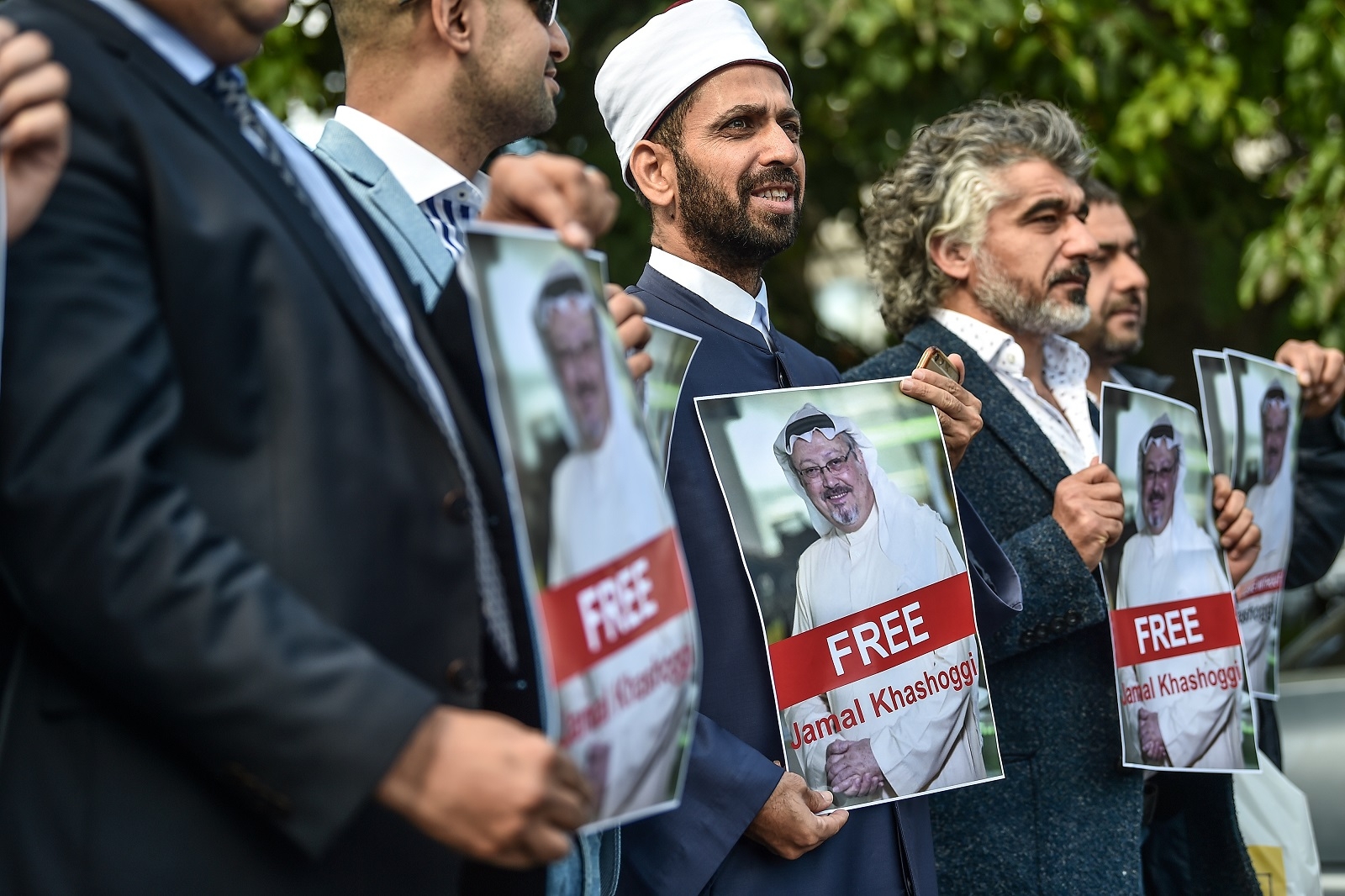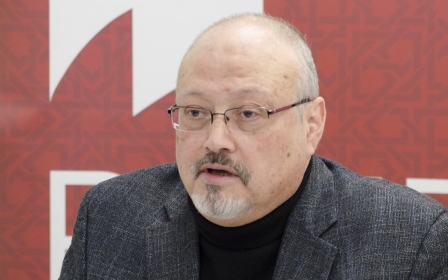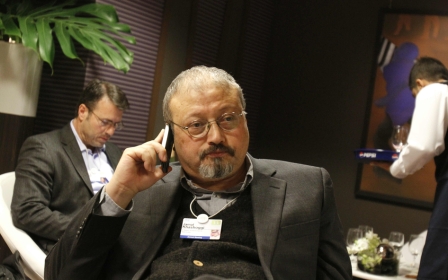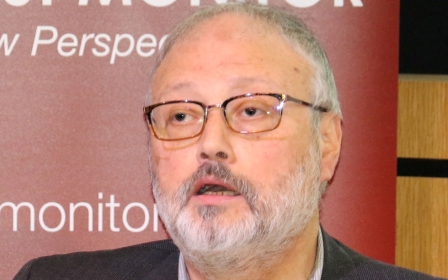Washington Post decries 'missing voice,' as Khashoggi's disappearance continues

Sometimes, it's more powerful to say nothing at all.
That's the approach the Washington Post took today, as the US newspaper left a blank slate on its Opinion page to draw attention to the disappearance of Saudi journalist and Post contributor Jamal Khashoggi.
Underneath a photo of Khashoggi, a headline reads simply: "A missing voice".
"We are holding a spot for Jamal Khashoggi in Friday's newspaper," the Post said in a tweet, which included a photo of the exceptional, empty spot at the centre of the page.
Khashoggi has not been seen since Tuesday, when he entered the Saudi consulate in Istanbul to get paperwork done.
Since then, reports as to his whereabouts have been conflicting.
Turkish officials say Khashoggi remains inside the consulate, and his fiancee, who was waiting for him outside, also says she never saw him come out.
On Friday, Saudi Arabia's powerful Crown Prince Mohammed bin Salman said Riyadh was willing to allow Turkish authorities to search the consulate in Istanbul, insisting Khashoggi left the building before his apparent disappearance.
"My understanding is he entered and he got out after a few minutes or one hour," he said in an interview with Bloomberg. "I'm not sure. We are investigating this through the foreign ministry to see exactly what happened at that time."
He went on to tell the US business publication that the consulate has "nothing to hide".
A critical voice
Khashoggi had been living in self-imposed exile in the United States for more than a year, fearing his criticism of bin Salman's government would land him in prison.
The Saudi journalist had raised questions about the state of human rights and freedom of expression in the Gulf kingdom.
Since his disappearance, his colleagues - as well as media freedom and human rights groups around the world - have demanded answers.
The Committee to Protect Journalists called the situation "a cause for alarm," while Lynn Maalouf, Middle East research director at Amnesty International, called on the Saudi authorities to prove that Khashoggi left the consulate as they have claimed.
"If returned to Saudi Arabia, Jamal Khashoggi would be in serious danger given the pattern of flagrantly unfair trials that have been leading to long prison sentences and even the death penalty," Maalouf said in a statement on Friday.
Sarah Leah Whitson, Middle East director at Human Rights Watch, also placed the burden of proof on Saudi Arabia, saying the kingdom must "produce evidence for its claim that Khashoggi left the consulate alone, and that Saudi agents have not detained him".
On Friday, the journalist's supporters gathered in front of the consulate in Istanbul to demand his release.
"As journalists, we are worried about the fate of Jamal. We don't know whether he is alive or dead. Saudi Arabia's statements in this direction are far from satisfactory," Turan Kislakci, head of the Turkish-Arab Media Association (TAM), said in a statement to supporters.
I see him as not only a colleague in our field but an inspiration, too
- Karen Attiah, Global Opinions editor, Washington Post
Yemeni activist and 2011 winner of the Nobel Peace Prize Tawakkol Karman slammed Saudi authorities at the gathering. She told AFP she believes Khashoggi "was kidnapped in this gangster's den that is supposed to be a consulate".
"What we want is Jamal Khashoggi's release. He entered the building of the consulate, he has to come out of there safe and sound. And the Turkish government must assume its role and deal with the case of Jamal Khashoggi because Turkish sovereignty has been violated," she said.
On Wednesday, Khashoggi's editor at the Post, Karen Attiah, wrote that he was motivated by a "keen desire to demystify Saudi Arabia for a global audience".
"As a journalist and editor, I learn so much from him and his experiences. I see him as not only a colleague in our field but an inspiration, too," Attiah wrote.
"Jamal, if you have a chance to read this, please know that we at the Post are actively seeking to ensure your safety and freedom. I won't be able to rest easy until you appear safe and sound."
Middle East Eye propose une couverture et une analyse indépendantes et incomparables du Moyen-Orient, de l’Afrique du Nord et d’autres régions du monde. Pour en savoir plus sur la reprise de ce contenu et les frais qui s’appliquent, veuillez remplir ce formulaire [en anglais]. Pour en savoir plus sur MEE, cliquez ici [en anglais].




